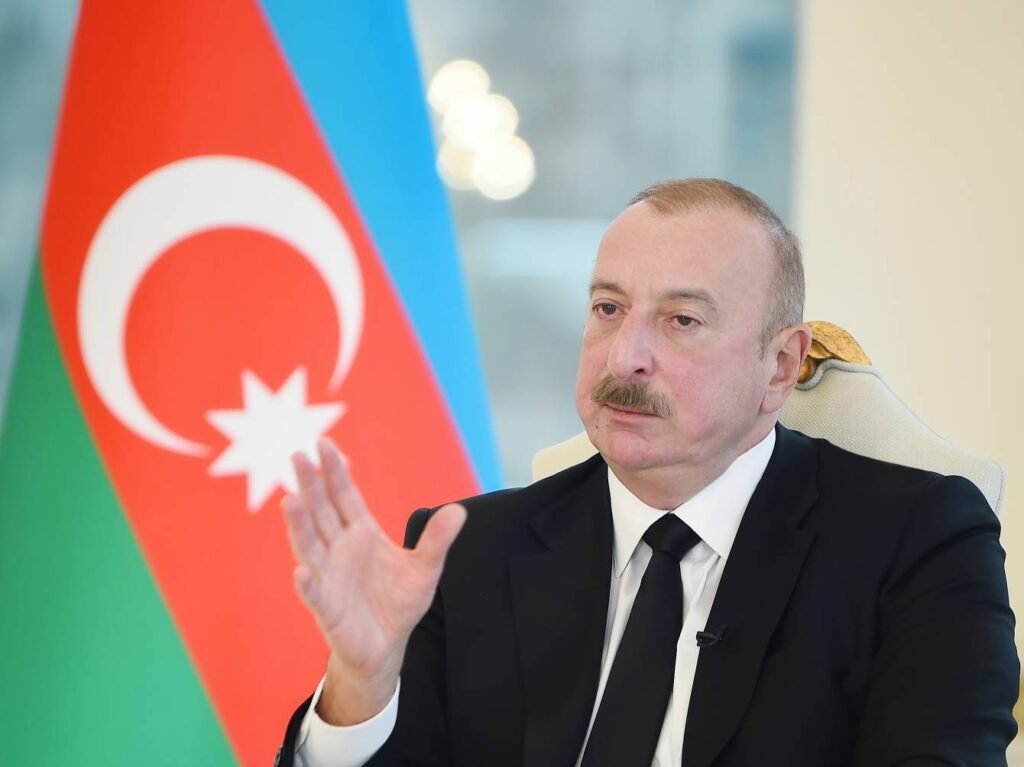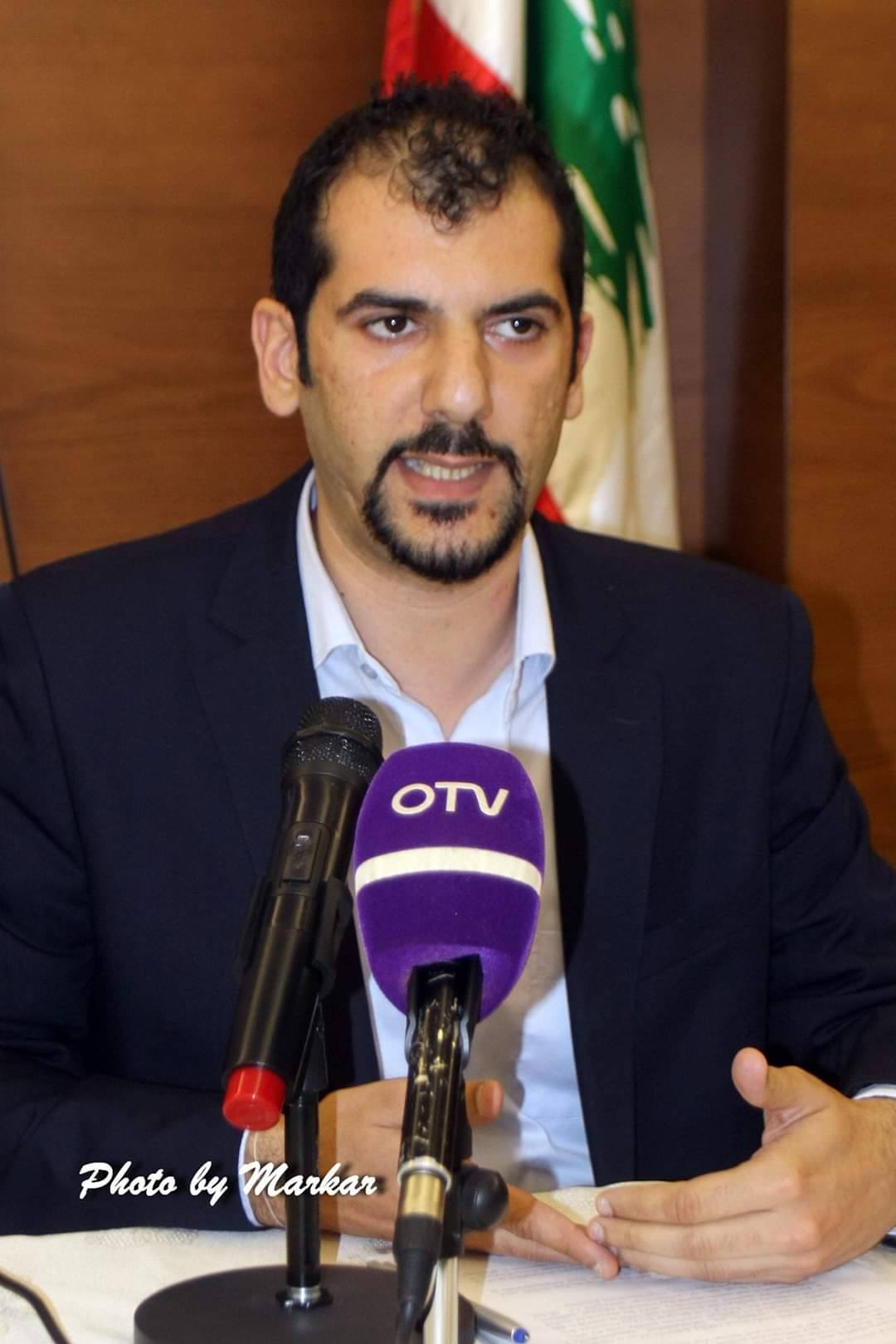
Aliyev’s recent remarks on Armenia
On January 10, 2024, Azerbaijan’s President Ilham Aliyev gave a 2.5-hour interview with local TV channels. In his interview, Aliyev not only repeated false remarks and justified the ethnic cleansing of the Armenians of Artsakh but also threatened Armenia.
When it comes to delimiting and demarcating the Armenia-Azerbaijan border, he rejected the old Soviet maps proposed by Armenia, arguing, “In the 20th century, the lands of Azerbaijan were given to Armenia in parts. One day after the establishment of the Azerbaijan People’s Republic in 1918, the ancient Azerbaijani city of Irevan was handed over to Armenia. After the Sovietization in April 1920, in November, the Soviet government took the bigger part of Western Zangezur from Azerbaijan and handed it over to Armenia. By May 1969, Azerbaijani lands were given to Armenia in parts, and from an area of about 100,000 square kilometers, it dropped to 86,600 square kilometers.”
Aliyev also continued pushing the false “Zangezur corridor” narrative. He ignored Armenia’s sovereignty over transport routes in its southern province Syunik, insisting that Azerbaijani cargo must pass from Nakhichevan to other parts of Azerbaijan via Meghri without any inspection or customs clearance and under Russian control. If not, Aliyev warned, Baku will continue its blockade on Armenia.
Regarding the Soviet-era exclaves, Aliyev said, “The four villages should be returned to Azerbaijan without any preconditions. The villages that are enclaves, a separate expert group should be established and the issue should be discussed. The roads leading to these enclaves should have the necessary conditions, and the people living there should be accommodated in these enclaves.” Aliyev added that Azerbaijan will not withdraw its troops from the positions within Armenia it captured in May 2021 and September 2022, meaning that as long as the border is not defined, Azerbaijan can freely occupy Armenian territories.
Responding to Aliyev’s interview, Armenia’s Prime Minister Nikol Pashinyan said he considered the Azerbaijani president’s statements a “serious blow to the peace process” and accused Baku of attempting to form territorial claims against Armenia. Aliyev’s remarks were not surprising. Tigran Grigoryan, the head of the Yerevan-based Regional Center for Democracy and Security, said that Aliyev is aiming to impose a “victor’s peace” on Armenia. He warned that Azerbaijan “has no intention of relinquishing control over these territories (occupied in 2021 and 2022) under any circumstances.”
Such remarks should not come as a surprise, as Aliyev is mobilizing his people before the upcoming presidential elections and seeks a high voter turnover to consolidate his power and legitimize his rule in the eyes of the international community.
Why hold elections now?
In December 2023, President Aliyev called for snap presidential elections on February 7, 2024 (which were originally scheduled for October 2025). The election is also informally known as the “Victory Elections” due to Azerbaijan’s military operation in Artsakh last September. As in previous elections, this election takes place in an authoritarian context in which opposition and independent media are suppressed, and the two main opposition parties, Musavat and Popular Front, are boycotting the election, citing its undemocratic nature.
Bahruz Samadov, a Ph.D. candidate in Political Science at Charles University in Prague, argued that the Azerbaijani public has never been so disengaged from politics and political campaigns. Samadov argued that since 2020, Azerbaijan’s political agenda has been dominated by relations with Armenia and Artsakh. After Baku’s military victory in 2020 and 2023 and the mass exodus of Armenians from Artsakh, Azerbaijan has adopted an anti-Western stance, accusing the West of pro-Armenian bias, according to Samadov. Moreover, while the largest opposition parties are boycotting the elections, as they have done for the last two presidential elections, Aliyev’s challengers are “largely sycophants who echo the regime’s talking points.”
This is unsurprising, as during the first electoral debate on Azerbaijani public TV, all of the candidates praised Aliyev’s military victory in Artsakh. One of the candidates, Fuad Aliyev, called for closer relations with Russia, China, the Shanghai Cooperation Organization (SCO), BRICS and the Eurasian Economic Union (EAEU) and distancing the country from the West. Ultra-nationalist Elshad Musayev from the “Greater Azerbaijan Party” made territorial demands against Armenia and called for the annexation of Syunik, which he called Azerbaijani “historical land.” MP Gudrat Hasanguliyev from the “Whole Azerbaijan Popular Front Party” vowed to closely cooperate with Turkey, Russia, Israel, Pakistan and the Turkic states.
Observers have speculated on the timing of the elections. An article in the Associated Press suggested that Aliyev moved up the vote to coincide with elections in Russia in an attempt to minimize possible Russian influence. Opposition leader Ali Kerimli argued that authorities “are afraid of political competition even in this repressive atmosphere.” Meanwhile, the Musavat leader Arif Hajili criticized the date of the snap elections and called the election a “formal procedure,” arguing that the majority of people will not go to voting centers due to the cold winter season.
Unlike previous elections, the current campaign is full of anti-Western hysteria and serves as a direct message to the West. It is also unclear whether this will be the beginning of a divorce with the West and whether Azerbaijan will take a Belarussian path to further consolidate authoritarianism and move closer to Russia. Such a scenario would be seen as a success in Moscow, as Baku’s growing geo-economic importance for Russia within the context of the “International North-South Transport Corridor” is increasing.
Deepening the divide with Europe
Amid the presidential electoral campaigns, Baku’s relations with the EU are deteriorating. On January 22, 2024, during the first meeting of the winter session of the Parliamentary Assembly of the Council of Europe (PACE), the credentials of the Azerbaijani delegation were not approved, and its voting rights were limited. Some of the reasons offered by PACE for this decision included that Azerbaijan did not allow EU observers to visit the Lachin Corridor in 2023, observe the humanitarian situation in Artsakh nor meet with the Armenian political prisoners currently detained in Baku.
Azerbaijan responded to this action by claiming that “the Karabakh problem has been solved. Azerbaijan currently does not need the Council of Europe, which does not have influence in Europe.” Baku suggested that it may consider leaving the jurisdiction of the European Court of Human Rights (ECHR). Azerbaijani MP Azer Badamov also hinted that Azerbaijan may leave the European Court. “The decisions of the European Court regarding Azerbaijan were only related to the protection of the ‘5th column’ of the West. Through the ‘5th column’, the West tried to disrupt social and political stability in Azerbaijan, weaken the country and turn it into a place of color revolutions,” he said.
The government-owned agency APA also accused PACE of being “pro-Armenian,” “Islamophobic,” a “tool against Azerbaijan” and acting like “other Christian clubs like the European Union and the European Parliament.” Interestingly, Azerbaijan, which portrays itself as a secular and multicultural country, has started using sectarian language similar to that of Turkey’s political leaders when addressing European institutions. The media channel also accused the “French-German tandem” of “acting together in recent steps taken against Azerbaijan in Europe.” Amid this crisis, Armenia’s ambassador to the EU Tigran Balayan said that he expects the EU to impose sanctions on the Azerbaijani government.
This anti-Western hysteria in Azerbaijan is marginalizing the voices of opposition and independent voices. Human rights activists have raised concerns over the detention of about a dozen journalists and civil society figures since November. Azerbaijani activist Rustan Ismayilbayli tweeted, “If Azerbaijan is going to leave CoE (Council of Europe) as the next step, all international mechanisms, which let activists and journalists defend themselves at some level, will be gone. We have been through horrible days, much more horrible days are coming.”
Conclusion
Are Aliyev’s recent remarks part of an electoral tactic or in preparation for a new war against Armenia? The Azerbaijani president’s recent interview showed that Aliyev has no sincere intentions to build peace in the region and put an end to his hatred of the Armenian nation. Autocrats always need external (and sometimes internal) enemies to consolidate and justify their rule. If they don’t have any, they must create one. The life of Middle Eastern autocrats is a clear example in which decades-old authoritarian rule and one-party systems justify their rule against existent and sometimes imaginary enemies. With this aim, will Aliyev risk a new escalation? It is unclear whether the Azerbaijani president will risk an open confrontation with the West and abandon his country’s traditionally balanced foreign policy after the elections. While he may dictate new terms against Armenia through a war, he may be forced to abandon his traditional balanced foreign policy if he further isolates his country.



For those who believe Aliyev is Sincer for peace I say you can trust scorpion in your pocket but not a Turk.
The terrorist cesspool of artificial republic of Azerbaijan on its own does not have the power now, nor did it have at any other time, to demand anything from Armenia using such belligerent rhetoric. Terrorist Turkey is behind all this just like terrorist Turkey was behind the 2020 invasion of the Armenian Liberated territories. It is inconceivable to believe that Ilham Aliyev the draft-dodging chicken-hawk son of the late KGB agent Heydar Aliyev, defeated and humiliated by Armenian victors three decades ago, can make such demands from Armenia on his own when he himself could only dream of getting some concessions from Armenia a decade or two ego when he took over the leadership of this artificial terrorist state after his KGB father’s death. Turkish and pseudo-Turkish Azerbaijani terrorists are well-known for being opportunistic and they will exploit the current situation to their advantage to the fullest and to the detriment of Armenia and right now in particular given the fact that today Armenia is still being run by an incompetent and dysfunctional government whose leaders, completely detached from reality, think they can make peace with devils. What our enemies are illegally demanding today are part of their century-old unfulfilled dreams and they have found an opportunity to make their dreams come true. We must never allow this to happen. As far as trusting or believing in the sincerity of the Turkish and pseudo-Turkish Azerbaijani terrorist leaders are concerned, I say you can believe that pigs will grow wings long before you can trust or believe what they say. Realistic or not, our ultimate goals should be holding Turkey responsible for their genocidal crimes and the liberation of occupied Western Armenia as a result and the total destruction of artificial Azerbaijan republic invented on occupied Armenian territories. If there is a will there is a way.